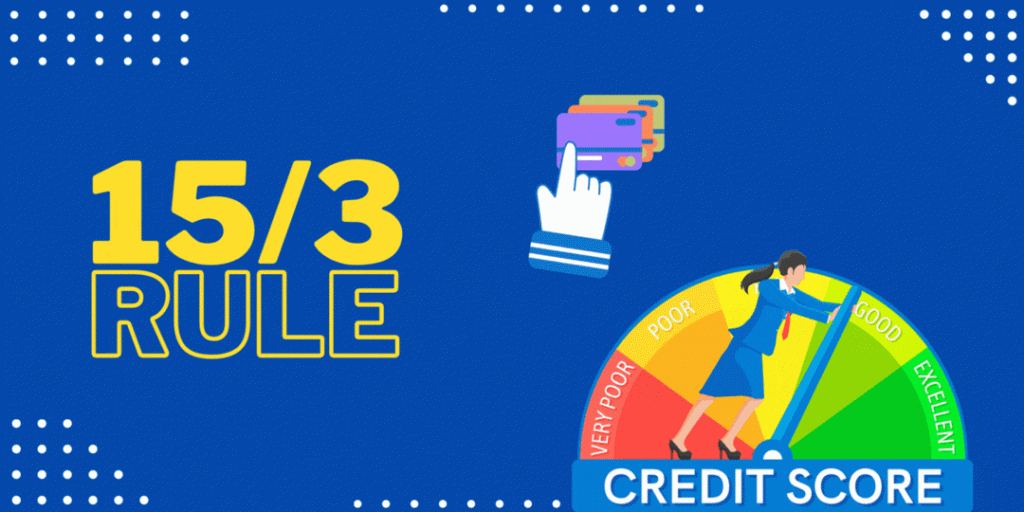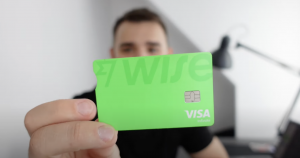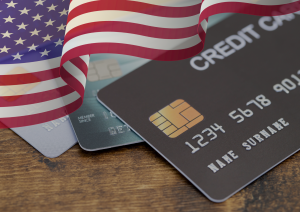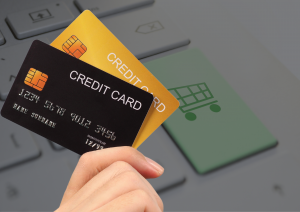Few people would argue that credit cards can be a double-edged sword. For all the convenience, welcome bonuses, and rewards that many cards offer, there’s also the danger of overspending.
What We'll Cover
- When and How Should You Pay Your Credit Card to Avoid Interest?
- Is It Better to Pay Your Credit Card Twice a Month?
- When and How Should you Pay to Increase Your Credit Score?
- How Early Can I Pay My Credit Card?
- Can I Use My Credit Card the Same Day I Paid It Off?
- Can I Pay My Credit Card Bill With Another Credit Card?
- When Is a Credit Card Payment Considered Late?
- How Late Can a Credit Card Payment Be Without Affecting Credit?
- Conclusion
As many credit card customers have learned the hard way, it can be incredibly easy to fall prey to the dangers of excessive debt and high interest. When credit card debt gets out of hand, it can even negatively affect your credit score.
The good news is that, when used responsibly, credit cards can also help repair any prior damage that your credit score may have suffered. Whether you’re currently facing excessive debt or simply looking to maximize your credit card rewards, you’ve come to the right place.
Here we’ll answer common questions about the best ways to use credit cards to improve your credit while avoiding debt and interest.
When and How Should You Pay Your Credit Card to Avoid Interest?

While it may seem obvious, there’s one simple truth that’s worth reemphasizing- it's always best to pay off your credit card balance in full each month if you can afford it. Contrary to common misconception, paying off your card in full will not affect your credit score negatively.
What it will do is help you avoid paying interest and decrease the overall amount you owe. Most credit cards have what’s known as a grace period.
A grace period starts at the end of each billing cycle and ends on the date that your next payment is due. If you can pay off your balance in full during this time, you can often avoid paying interest altogether.
The length and terms of grace periods can vary based on your credit card, so it's important to look at the fine print. Some grace periods, for instance, only apply to purchases as opposed to transactions like cash advances.
Is It Better to Pay Your Credit Card Twice a Month?

Paying off your credit card in biweekly or even weekly installments can be a great move for several reasons. Rather than tucking away enough money for one large payment, making smaller monthly payments throughout the month can feel a lot more manageable.
Paying off even part of your balance early can also help lower your interest rate if you’re not able to pay off your balance in full. This goes back to understanding how credit card interest is calculated.
As Experian explains, interest on your remaining balance is actually calculated each month based on your average daily balance. Some credit card companies even compound interest daily.
In simple terms, the quicker you pay down your balance each month, the quicker your issuer will lose the ability to charge interest on it.
What is the 15/3 rule?

If you’re interested in making two smaller monthly payments instead of one larger one, then you might try employing the 15/3 rule. The idea is that you make one payment 15 days before your statement date and another three days before.
While rumor claims that this can dramatically boost your credit score, the truth is that making your payments on these two dates doesn’t really make much of a difference. While there can be benefits to making two or more smaller payments each month, you can make them anytime.
If it’s easier for you to simply make payments every time you get paid, then that should work just as well. Assuming, of course, that you make both payments by or before your payment is due.
When and How Should you Pay to Increase Your Credit Score?
Another benefit to paying off your card early or in installments is that it helps decrease what’s known as your credit utilization rate. Your credit utilization rate is simply the percentage of your available balance that you’re currently using.
For instance, imagine that your total spending limit on a credit card is $10,000. If you currently owe $7,000, your credit utilization rate is 70%. If you only owe $2,000, however, then your credit utilization rate is only 20%.
If you want to increase your credit score or keep it from being negatively affected, then it’s best to always maintain a rate of 30% or less. In the example above, that would mean never spending more than $3,000 of the total $10,000 you have available.
Issuers report to different credit bureaus at different times throughout the month. For this reason, making biweekly or even weekly payments can help ensure that your credit utilization rate is regularly as low as possible.
Check Your Credit Score for Free
How Early Can I Pay My Credit Card?

As we’ve established, it’s always a good idea to keep your balance as low as possible. But how early should you pay your credit card and is there such a thing as making a payment too early?
Rest assured that credit card issuers welcome payments at any time. While some mortgages or other installment loans charge prepayment penalties, this is not the case with credit cards.
If you really want to maximize your credit card rewards, making early payments is a great way to do it. The trick is to never spend more money than you have on hand.
If you’ve got a card that offers excellent rewards or benefits, then try using it instead of (rather than in addition to) your debit card. By paying off your balance as you go, you can enjoy all the perks your card offers without incurring debt or interest.
Many customers pay off their debt weekly or biweekly in order to stay on top of their budget. If you really wanted to go hardcore, you could technically even pay off your debt after every purchase.
Can I Use My Credit Card the Same Day I Paid It Off?

As long as your account is still open and in good standing, you should be able to use your balance as soon as it’s available. Most credit cards now have convenient online or app payment options that will reflect any payments you make immediately.
Just be sure to make sure that this is the case with your card if you’re counting on being able to use a higher balance on the same day. In some cases, your payments may take a day or two to settle.
Can I Pay My Credit Card Bill With Another Credit Card?

Kind of. While you can’t pay your credit card bill with another credit card directly, there are some creative workarounds. The first is to use a cash advance from one credit card to make a payment on another.
Just make sure that you check for any fees associated with cash advances, as many cards charge a fee or higher interest rate on these types of transactions. The other way to go about it is through a balance transfer.
A balance transfer simply involves switching your balance from one credit card to another. The idea is to transfer your balance to a card with a lower interest rate to make your payments go further.
Many 0 interest credit cards, for instance, will come with a cut-off date after which the 0 interest APY expires. At this point, some customers attempt to find other 0% intro APR credit cards that offer balance transfers so they can keep avoiding interest as they pay off their balance.
You may also want to read: No Interest Credit Cards for 24 Months: Best Options
When Is a Credit Card Payment Considered Late?

According to the Consumer Financial Protection Bureau, credit card payments are generally considered on time if they are received by 5 pm on the due date. If your due date happens to fall on a weekend or bank holiday, you may be able to skirt by if you make it by the next business day.
Just keep in mind that even online payment processors may take a day or two to settle. For this reason, it’s always best to make your payment at least a few days in advance.
How Late Can a Credit Card Payment Be Without Affecting Credit?

We’ve all been there. Maybe you don’t make it to the bank to cash your check on time or you simply forget to pay your bill until after it’s due.
But will making your payment a day or even a week late affect your credit score? Probably not, even though you will likely get hit with a late fee.
Most issuers won’t report your payment as late to credit bureaus until it’s at least 30 days late. If you can make your full payment before then, then it’s unlikely it will pose a threat to your credit score.
How Many Days for a Late Payment to Affect Credit Score
| Days (after due date) | Affects Credit Score? | Fees | Details |
| 1 – 29 Days | No | Almost always | Many issuers won’t report your payment as late if it’s made at least 30 days after the due date. Almost all will charge you a late fee. |
| 30+ Days | Usually | yes | Can lower your credit score by up to 100 points |
| 60 + Days | Definitely | yes | While some generous issuers will wait 60 days to report your payment as late, almost all will report late payments after this point. |
What if you’ve found yourself in a bind and can’t make your payments on time due to financial hardship or another emergency? The best thing you can possibly do is reach out to your issuer and explain your situation.
Most issuers will be surprisingly willing to work with you, especially if you’ve historically been a good customer. The worst thing you can do is dodge your creditors until they end up turning over your debt to a collection agency.
Conclusion
At the end of the day, if you really want to maximize your credit card rewards, then it's vital to resist getting blinded by them. While it may be tempting to use your card to rack up airline points or cashback offers, make sure that you always weight them against the reality of your financial situation.
Any benefits you stand to gain by using even the best rewards credit cards can quickly be canceled out by high interest payments or late fees. We hope this has helped give you some insight into how to use credit cards to your advantage, rather than letting them take advantage of you!
The responses below are not provided, commissioned, reviewed, approved, or otherwise endorsed by any financial entity or advertiser. It is not the advertiser’s responsibility to ensure all posts and/or questions are answered.





